Bristol Old Vic Theatre marks 250th anniversary
- Published
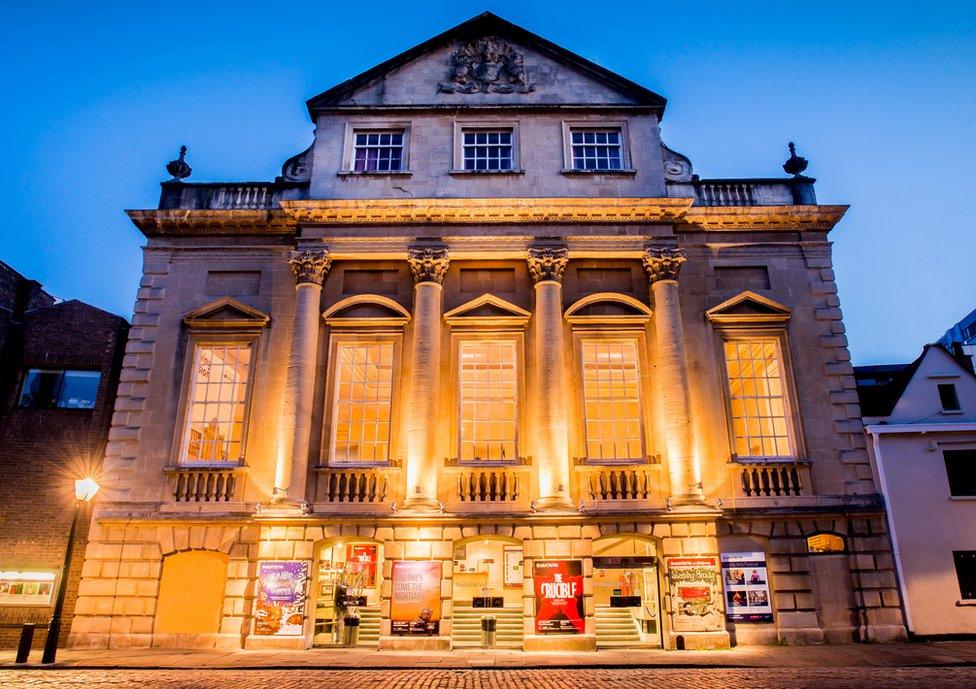
Bristol Old Vic Theatre opened exactly 250 years ago
Bristol Old Vic theatre is marking its 250th anniversary.
The historic playhouse, which opened on 30 May 1766, is the oldest continuously working theatre in the English speaking world.
As part of the anniversary celebrations an 18th Century "thunder run", which recreates the sound of thunder above the auditorium, was recently restored.
It will be used for the first time since 1942 in a production of King Lear next month.
See the 18th Century "thunder run" at Bristol Old Vic Theatre in action
Some of the UK's most famous and best-loved actors learned their trade at the Bristol Old Vic.
Graduates of the famous Bristol Old Vic Theatre School include Sir Patrick Stewart, Jeremy Irons, Miranda Richardson, Daniel Day Lewis, Patricia Routledge, Tim Pigott-Smith, Pete Postlethwaite, Mark Strong, Brian Blessed, Olivia Colman, Gene Wilder, Amanda Redman and Naomie Harris.

Sir Patrick Stewart, Olivia Colman, Jeremy Irons and Naomie Harris are all graduates of the Old Vic Theatre School
Bristol Old Vic features a Grade I listed auditorium which has recently been restored.
Although not a student at the theatre, Peter O'Toole began his stage career there, and described it as "the loveliest theatre in the world".
Daniel Day Lewis called it "The most beautiful theatre in England".
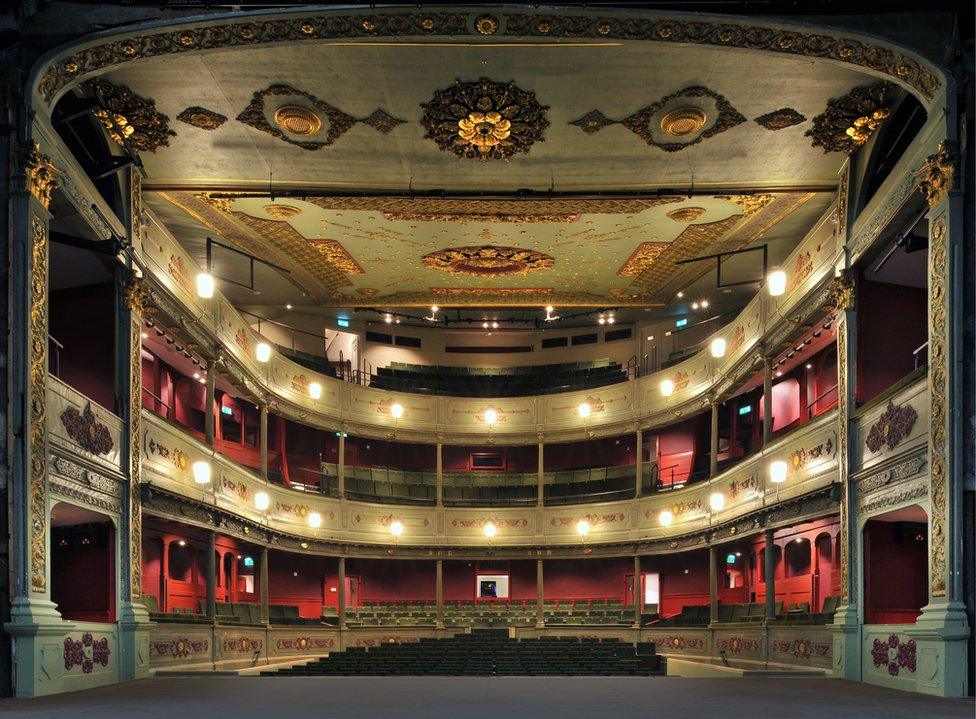
The auditorium was refurbished in 2012 as part of a £12 million theatre restoration
The old playhouse is reputedly haunted.
People have reported seeing the ghost of Sarah M'Cready, the theatre manager who worked there 180 years ago, although some say it is in fact the spirit of 18th Century actress Sarah Siddons.
The spirit of a former scenery painter called Richard, who died in an accident in the 1950s, is also said to sometimes move objects around.
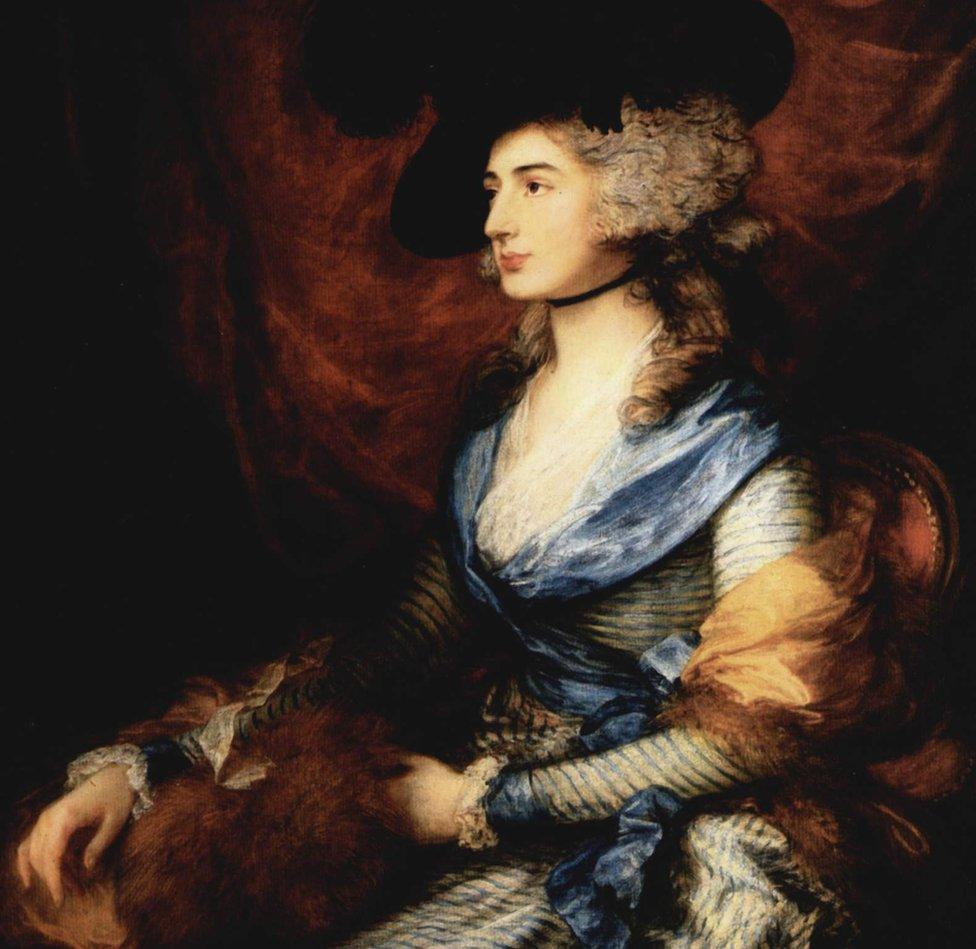
Some say the theatre is haunted by the ghost of actress Sarah Siddons
The theatre was originally built without Royal patent and was therefore technically illegal, so it had to disguise plays as musical concerts and hide its entrance from public sight.
It finally got a royal patent in 1778 when it became the Theatre Royal.
It became the Bristol Old Vic in 1946 when a company of actors from London's Old Vic was sent there to perform.
To mark the 250th anniversary plays from each of the four centuries it has been in existence have been, or will be, performed.
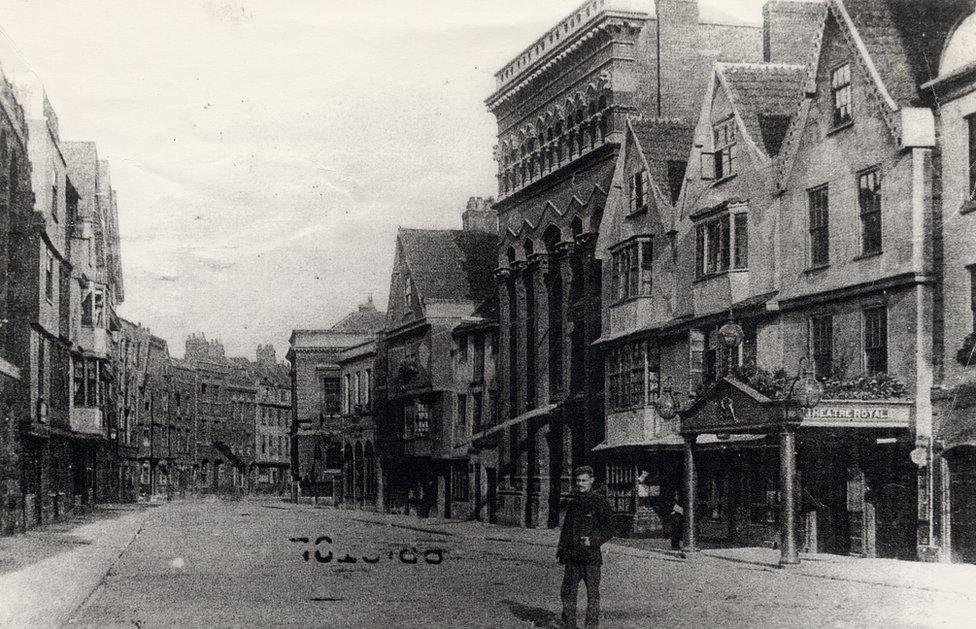
In the 18th Century the theatre was known as the Theatre Royal
The original theatre was founded in 1766 by 50 men and women, who each paid £50 in return for a "silver ticket", which granted the bearer the right to watch every performance in the theatre, forever.
Investors included local councillors, two future MPs and at least three Quakers.
To mark the 250th anniversary new silver tickets have been minted. Each one has been sold for £50,000 to help raise funds for the theatre's redevelopment.
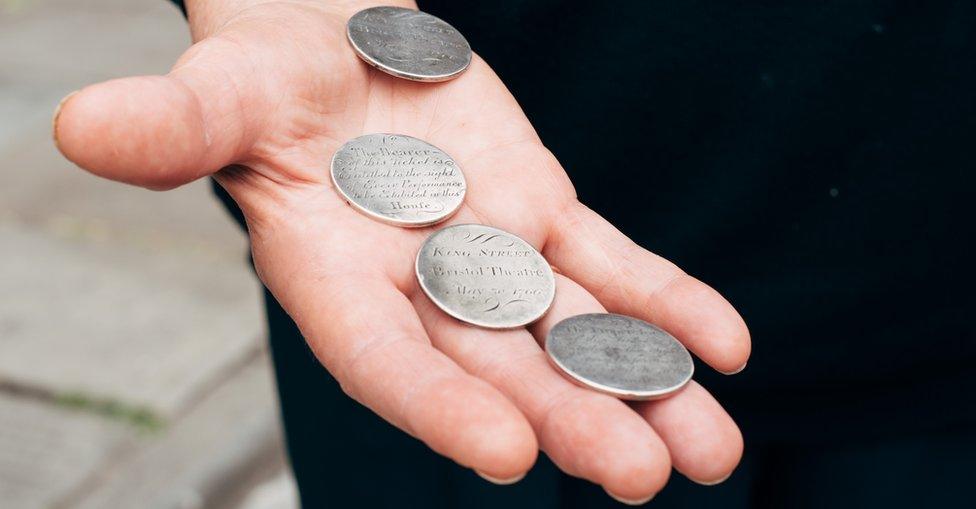
18th Century investors paid £50 for each silver ticket
The theatre has survived for two and a half centuries despite coming near to closure on several occasions.
During World War Two much of ancient Bristol was destroyed, but the theatre sustained only slight damage.
It fell into disrepair and in 1942 it was sold after a series of failed attempts to revive it.
The new buyers planned to turn it into a banana ripening warehouse, but an appeal was launched to save the theatre and it reopened in 1943.